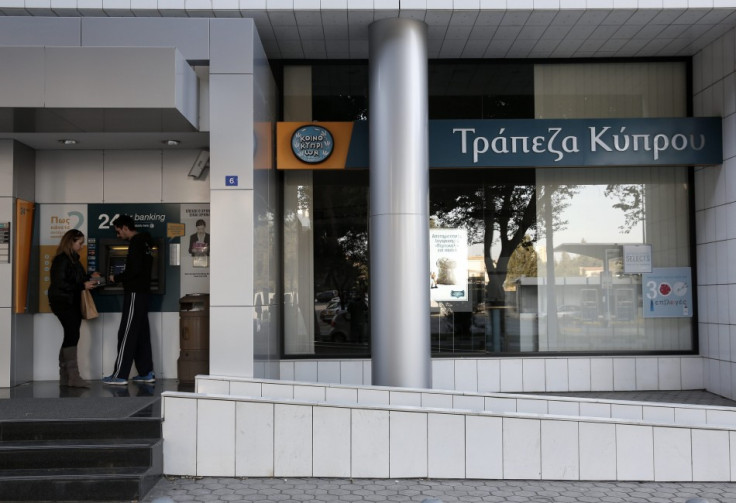Cyprus Extends Bank Closure until Tuesday as it Prepares "Plan B" for Bailout
President Nicos Anastasiades due to present "Plan B" on Thursday

Cyprus will continue to keep its banks shut until at least mext weel as lawmakers prepare to meet for a fourth day to debate alternative plans for funding its controversial €17bn bailout.
The troubled-country earlier decided to shut its banks fearing mass withdrawals in connection with the one-time levy on bank accounts above €20,000.
Cyprus' President, Nicos Anastasiades, is due to present the "Plan B" later to secure the much-needed bailout funds from the International Monetary Fund and fellow eurozone countries.
The lenders were demanding a one-time levy on bank deposits, which could raise around €5.8bn, as a condition for a further €10bn (£8.5bn/$13bn) from the EU and the IMF in the form of a bailout fund. However, the plan outraged many Cypriots and the country's parliament rejected the proposal, putting the leaders in trouble.
"A decision on a Cyprus rescue must be made on Thursday at the latest," Anastasiades was quoted as saying by the official CNA news agency.
He will present the new plan, which is expected to include a levy on bank deposits over €100,000 and nationalising pension funds, to a meeting of political leaders at first and then it will go before the parliament, according to CNA.
The new package would also include some aid from Russia, the Associated Press reported citing an official. The Cypriot Finance Minister Michalis Sarris is extending his stay in Moscow to secure assistance from Russia that owns billions of dollars of investments in Cyprus. Russian officials had previous expressed anger over Cyprus' bank levy plans.
Cyprus' banks suffered from their exposure to crisis-hit Greece, and their failure could result in the country going bankrupt. German Finance Minister Wolfgang Schaeuble has earlier warned Cyprus that the banks would never be able to reopen if the country rejected the bailout.
Cyprus was expected to raise €5.8bn through the one-time levy on bank savings. The scheme was altered on Tuesday to spare savers with less than €20,000, while keeping a 6.75 percent charge on deposits of €20,000-€100,000 and a 9.9 percent charge for those above €100,000.
The parliament, however, rejected the proposal, with 36 members voting against it, 19 abstaining from vote and none in favour.
© Copyright IBTimes 2024. All rights reserved.






